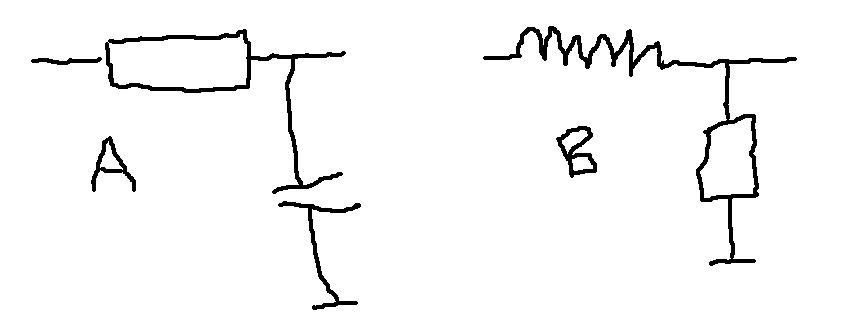|
Ok, can somebody to elaborate on the judgment which filter is better in case it is a corrector that acts in the middle of auditable range, let say from 1000Hz? It is the same filter but let look at the theory of judgments.
1) Filter A is conceptually better because it acts as shunt filter, kind of subtraction corrector… The signal in band-pass (below 1000Hz ) does not see filter at all and whatever is being filtered out is shunted to ground. Therefore the signal that is passing through does not exposed to the nastiness of capacitor’s dialectic.
2) Filter C is conceptually better because “indictors are better” and there is no transmission line reflections form the capacitor’s dialectic like in the filter A. The fact that the band-pass signal below 1000Hz flows unnecessary through the 120 feet of copper in the coil is irrelevant.
3) It is all depend of the quality of coil and the quality of capacitor and if both of them are conceptually “perfect" then there is no difference.

I would like to hear your take, not just the take but also your justifications Thanks, the Cat
"I wish I could score everything for horns." - Richard Wagner. "Our writing equipment takes part in the forming of our thoughts." - Friedrich Nietzsche
|